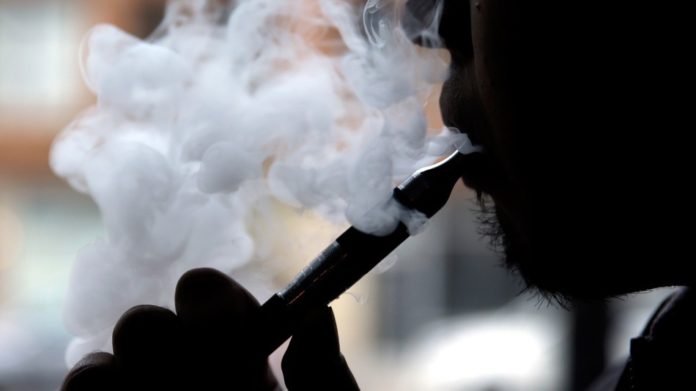UN Health Agency Pushes E-Cigarette Crackdown

GENEVA — Governments should have tougher rules for electronic cigarettes — banning their use indoors and putting them off limits for minors — until more evidence can be gathered about their risks, the U.N. health agency said Tuesday.
In a bid to set public policy, the World Health Organization said the popular nicotine-vapor products, particularly the fruit, candy and alcohol-drink flavors, could serve as gateway addictions for children and adolescents.
It recommended governments forbid or keep to a minimum any advertising, promotion or sponsorship in a market that has mushroomed to $3 billion last year and now includes 466 different brands.
In a report, the Geneva-based agency found that the boom in e-cigarettes presents a public health dilemma.
Regulation “is a necessary precondition for establishing a scientific basis on which to judge the effects of their use, and for ensuring that adequate research is conducted and the public health is protected and people made aware of the potential risks and benefits,” the report said.
The report, requested in 2012 by the 179-nation WHO treaty for controlling tobacco, is to be discussed at a conference in Moscow in October. If the recommendations are adopted, the next step would be for nations to strengthen their laws and policies to meet the treaty obligations.
Transnational tobacco companies are aggressively competing with independent companies for market share and the rapid growth of e-cigarettes’ use globally means appropriate regulation is needed, the WHO said.
“E-cigarettes are a story of both risks and promises. In a sense they are a double-edged sword,” Dr. Douglas Bettcher, director of WHO’s Department for Prevention of Non-communicable Diseases, told reporters. “The tobacco industry is taking greater share — as public health partners pretending to be part of the solution to the health disaster they have created.”
A day earlier, the American Heart Association urged more regulation particularly to keep them out of the hands of young people and said it supported the use of the battery-powered devices that vaporize nicotine only as a last resort to help smokers quit.
Little is known about the health effects of e-cigarettes, which have been sold in the U.S. since 2007 and contain less toxic substances than traditional cigarettes do. The biggest markets are Europe and North America, where U.S. regulators in April proposed treating e-cigarettes as tobacco products with rules such as a ban on sales to those under 18 and warning labels.
Sales are banned in 13 of the 59 countries that regulate the devices, the WHO reported, but most of those 13 countries say they are still available because of illicit trade and cross-border Internet sales.
Have something to add to this story? Share it in the comments.
